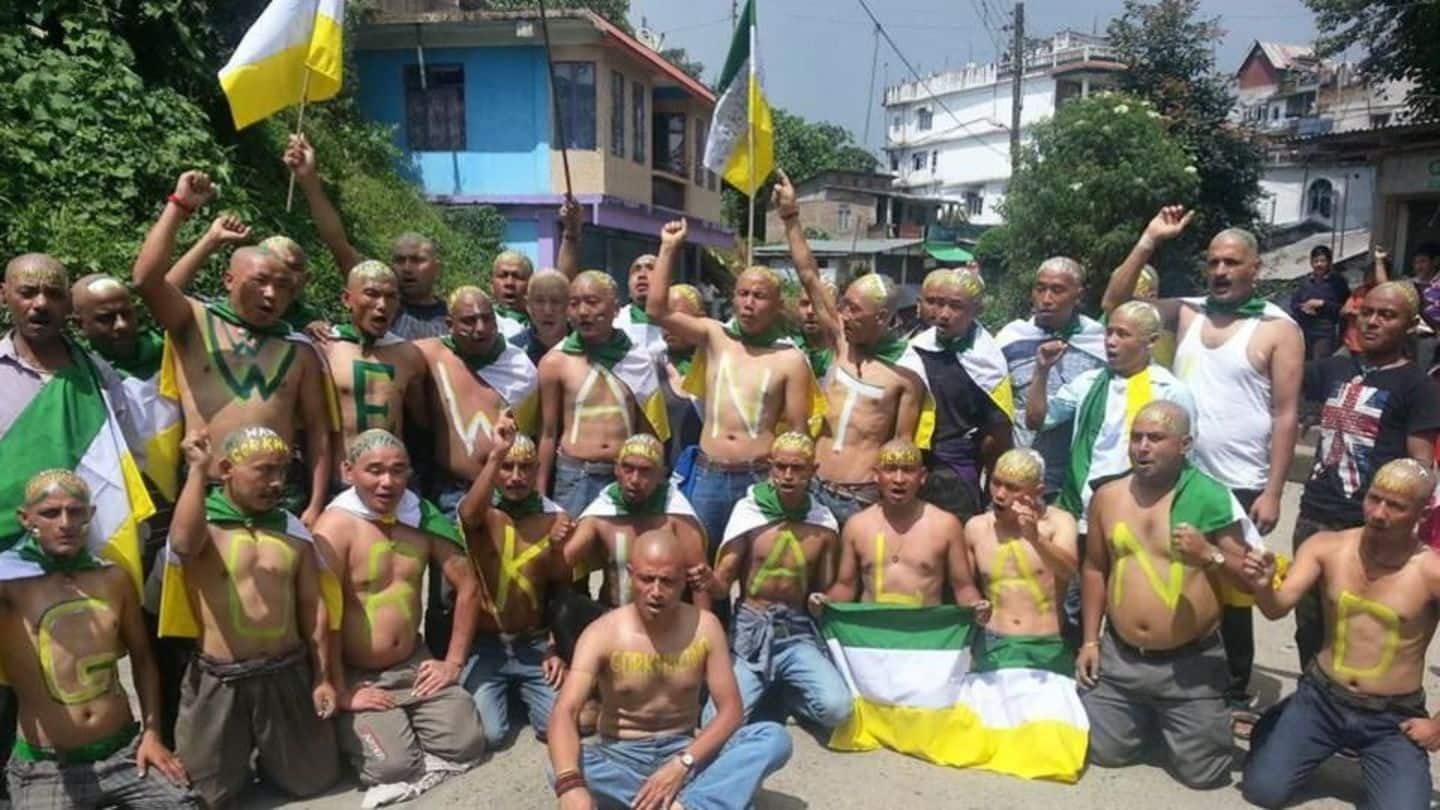
Gorkhaland: GJM ends shutdown but only until the next talks
What's the story
The Gorkha Janmukti Morcha (GJM) has decided to end the 72-day shutdown in the Darjeeling hills. This is only until the next round of talks with the West Bengal government being held on September 12, following which, the GJM will decide its future course. The GJM reiterated its separate state demand, which West Bengal CM Mamata Bannerjee has rejected. Mamata has welcomed the dialogue.
Origin
When did the Gorkhaland movement begin?
Demands for a separate Gorkhaland were initially made to the British Government but it fell on deaf ears. Later, after India's independence, there were demands for a separate country of "Gorkhastan" that would comprise Darjeeling, Sikkim and Nepal. In 1952, the All India Gorkha League approached PM Jawaharlal Nehru with a memorandum regarding autonomy for Darjeeling and neighboring areas. However, no consensus was reached.
Reasons
Why are Gorkhas demanding a separate state?
The movement is based on the issues of language and culture. There is also discontent that the state government has been giving them "step-motherly" treatment. Gorkhas want a separate Nepalese-speaking province within the Indian Union; their war cry is "Jai Hind, Jai Gorkha." They claim that despite being recognized as Indian citizens, they are regarded as "foreigners" due to their cultural differences.
Momentum
The Movement intensifies
In the 1980s, under Gorkha National Liberation Front's Subhas Ghising, the movement reached its peak. The period 1986-88 comprised of the most violent years of protest as approximately 1,200 people died. Giving in to some demands of autonomy, the Darjeeling Gorkha Hill Council (DGHC) was created. Following this, Ghising faded from the limelight and in 2008, the new outfit GJM began spearheading the movement.
Demands intensify
Calls for separate Gorkha state intensified after Telangana was formed
GJM's Bimal Gurung, unhappy with the DGHC, demanded a more autonomous organization. After Mamata became CM, she gave the go-ahead for the Gorkhaland Territorial Administration (GTA). However, there was continuous discontent that no real power was given to the GTA, whose administration itself lacked drive. After Telangana was granted separate statehood in 2014, the Gorkhas again began clamoring for a separate state.
Current crisis
What is the reason for the latest impasse?
The Gorkhaland cause received a new lease of life after Mamata's diktat that Bengali will be made compulsory in WB's schools. The Gorkhas expressed dissatisfaction that the WB government has consistently made efforts to impose Bengali culture on Gorkhas. Thus, they declared a bandh. Though Mamata clarified that it will be optional under the GTA-administered areas, Gurung didn't back down.
BJP role?
Political situation in the state
Gorkhaland is surrounded by Nepal, Bhutan, Bangladesh and China, making it vulnerable. It might find difficulty in getting statehood. BJP, GJM's ally, has got cold feet regarding the statehood demand though it supported the demand during 2009 and 2014 LS polls. This episode has helped Mamata improve her popularity in rest of Bengal, which is evident from the seats she won in the state's municipal polls.